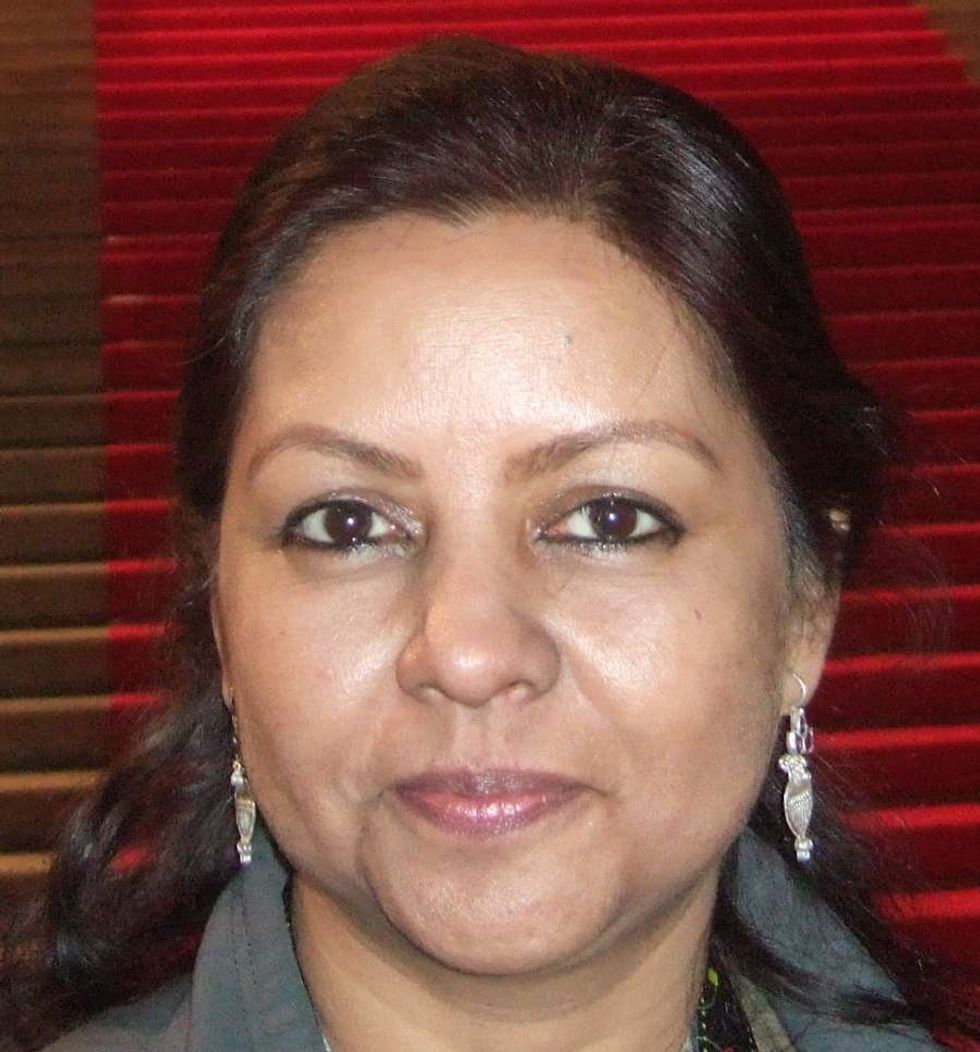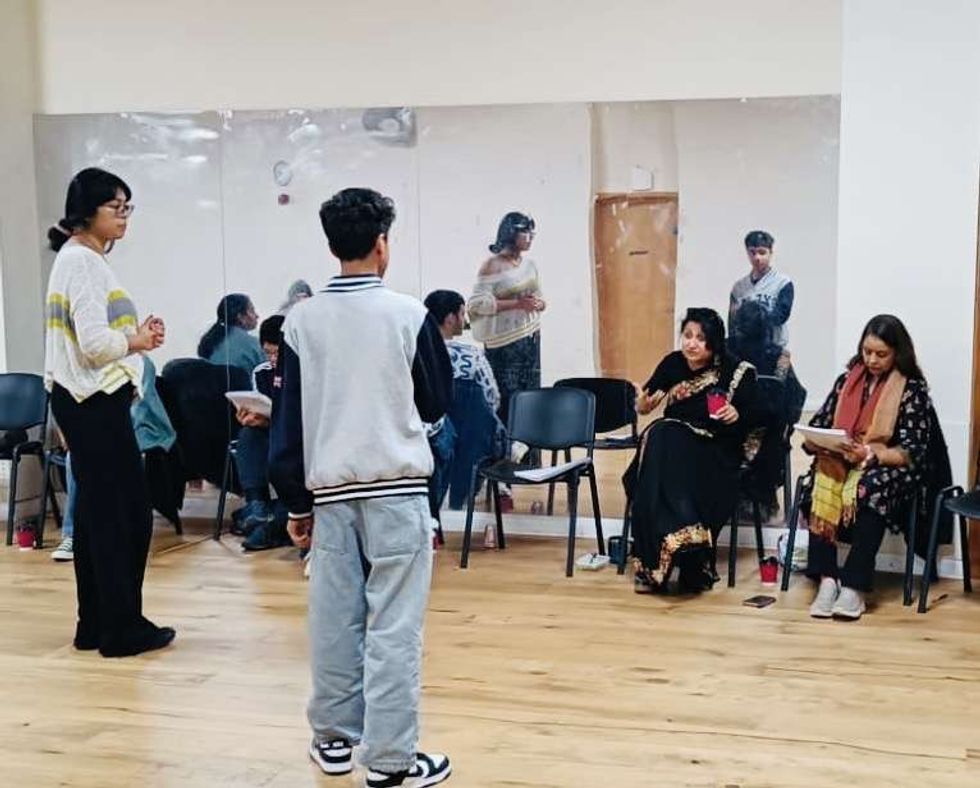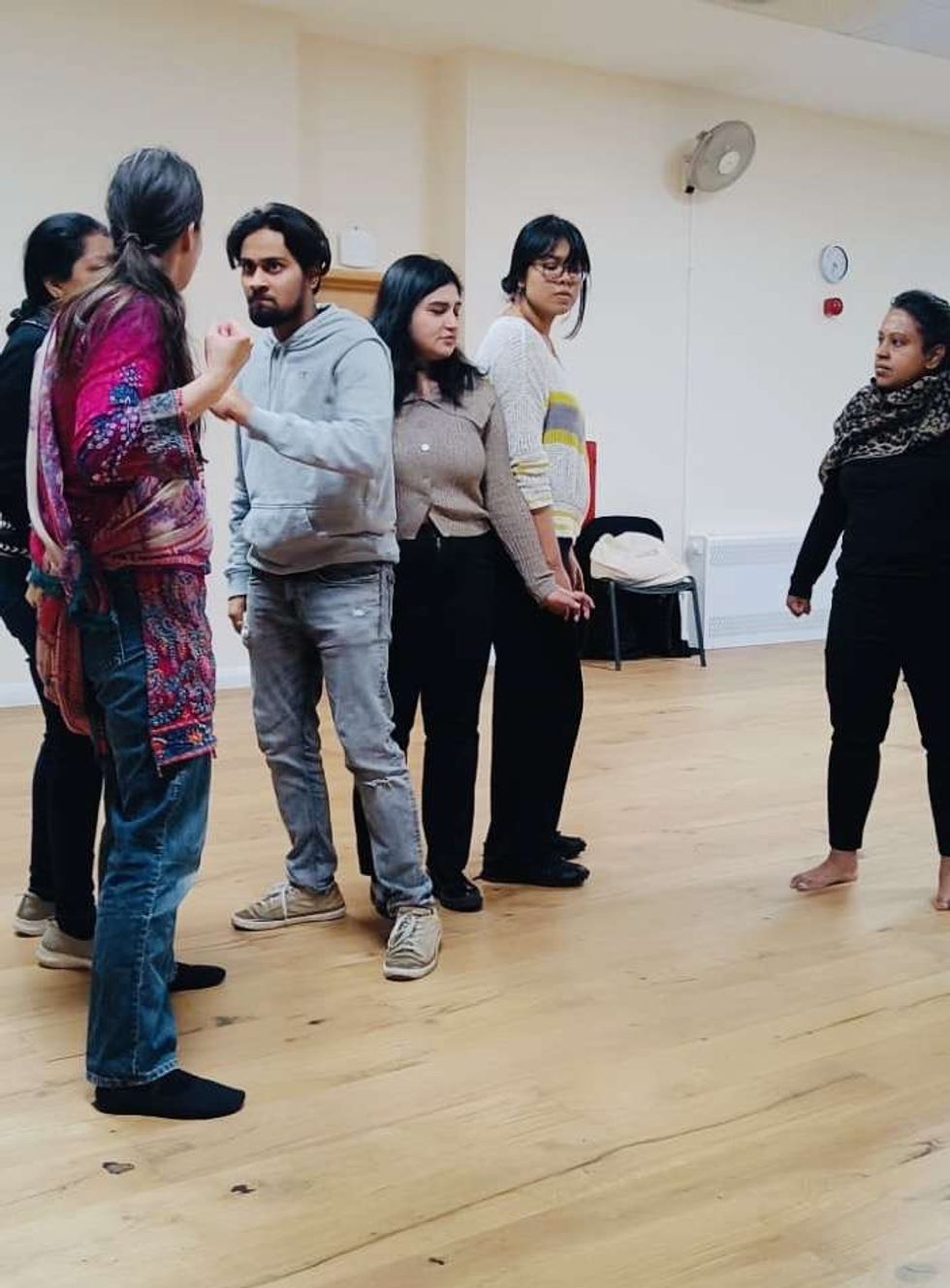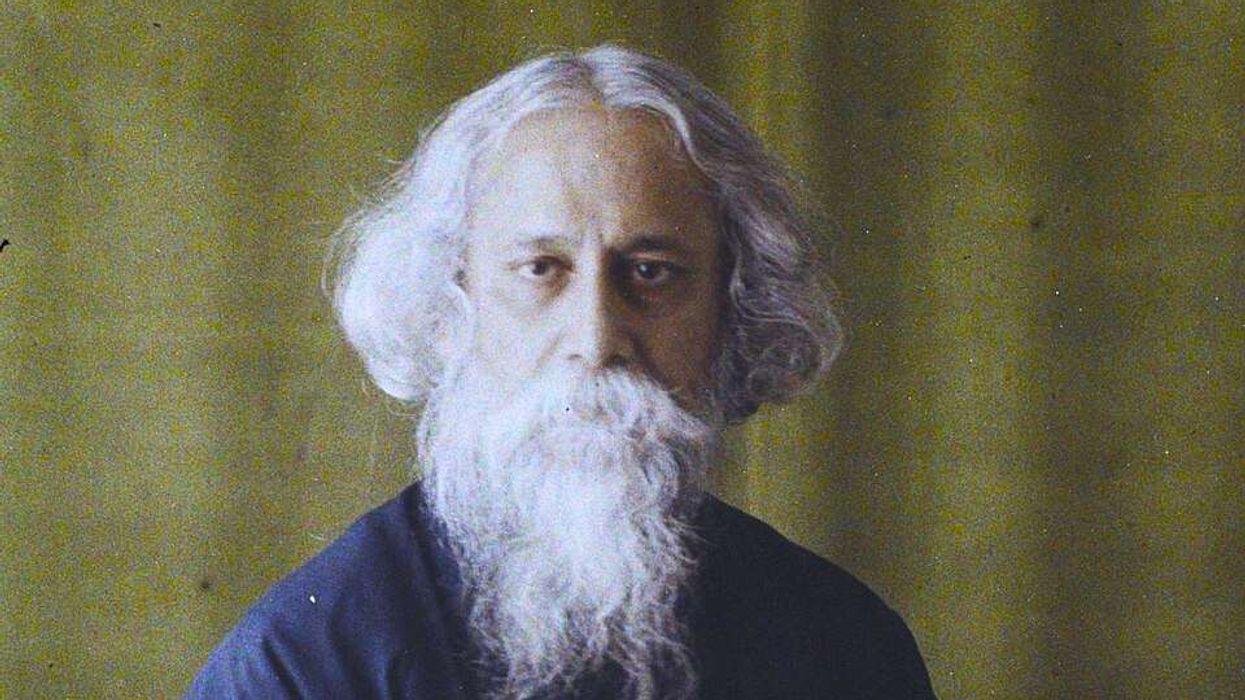Rakta Karabi is considered Rabindranath Tagore’s best play, but it was not staged during his lifetime. This symbolic drama was written in 1923-24. The English translation was published by Macmillan in London in 1925. Written between the World Wars and heightened freedom movement in India, when Tagore’s spirit was crushed with the devastation, the play is a critique of capitalism, colonialism, greed and abuse of power.
In a gold mining fort lives a tyrannical king and a young girl, Nandini, enters demanding freedom and liberty for the miners. She challenges the King’s absolute power and anticipates the rebel Ranjan’s entry.
Migrant workers are employed by the governor and never allowed to return to their homes. All protest is silenced and the men live in fear and suspicion. A priest delivers sermons and brainwashes the villagers. Harvesters sing in the distant fields but the miners are estranged from the beauties of nature.

In this dark inferno, Nandini arrives like a breath of fresh air, questioning the Professor, challenging the King, singing with her village friend Bishu Pagal. She is beauty, love, the healer and the link to Nature. She loves the rebel Ranjan, but he is killed by the King’s men. Nandini then leaves her grief behind to spearhead the revolution in the gold fortress. Dressed in red flowers of the Karabi tree, she stands for love, death and for liberty.
Tagore was inspired to find a small plant rear its head in a scrapyard of rusted metal and industrial waste. A few days later he saw a red flower had bloomed in that sterile wasteland. He found this to be a profound assertion of life, the “magic” that Nandini represents. When I read Tagore’s translation earlier this year the play seemed sharply relevant to out times. It addresses human rights, migrant worker’s rights, gender rights, environment issues. We are surrounded with war and violence, by fascism and intolerance, by the crushing of free will and free speech. We have our bad kings and rebels too!
The King in his dark chamber covets wealth and kills youth. He is trapped in his own system of power and hierarchy. Nandini asks him to step out and savour the joy of the earth.

As Artistic Director of Baithak, we were planning the project after receiving the National Lottery Community Funds. Tagore’s play seemed a perfect fit and we put out a wide audition call. Many in the cast are from outside London , travelling in from Coventry, Reading, Woking. The idea was to train a group of actors who had some exposure to theatre in the past but have little or no access today. We have some trained actors and others who are still learning. The group’s commitment and enthusiasm has been a revelation. Starting from one to one sessions with me we moved to theatre workshops and larger group activities. We started with a group of fourteen strangers. Now we have a family of cast and crew who address each other by their cast names. Now in the last week of rehearsals, the cast and crew are excited about the already sold out performance on 9 November.
At Baithak, we celebrate Indian arts legacy, offering a platform for dialogue, debate and new work. In our production, I have two Nandinis, one plays the Tagorean rebel girl, the other stands for the rebel girls across the last century who have dared to question the system and champion for freedom. As we revisit Tagore’s Red Oleanders in its centenary year with a young cast and crew, we discover how surprisingly relevant it is to our times and concerns, and what scope it offers for reinterpretation and revival.

As we celebrate the centenary year of this complex, gripping play, we discover with a fresh cast and crew, how questions of justice and freedom are pertinent in every age. How even in today’s age we may find the tyrannical king, the scheming governor, the rebel Ranjan who is killed and silenced. And then there are the Nandinis of our times who challenge the system, who call for a return to Nature, who fight for human rights.
(Red Oleanders is produced by Baithak UK, directed by Sangeeta Datta. Associate Director Sasha Ghoshal. Assistant Director, Set design and costumes: Subhaluxmi Mukherjee. Social media Jahnabi Banerjee. Marketing: Jonakee Chandra. Producer: Chandana Sanyal. The lead cast has Deblina Mazumdar (Coventry) and Nishat Tamanna Oyti (East London) as the two Nandinis, Alind Chopra ( LSE) as King and Sasha Ghoshal ( National Theatre/RSC) as Bishu Pagal, also the Associate Director.)




